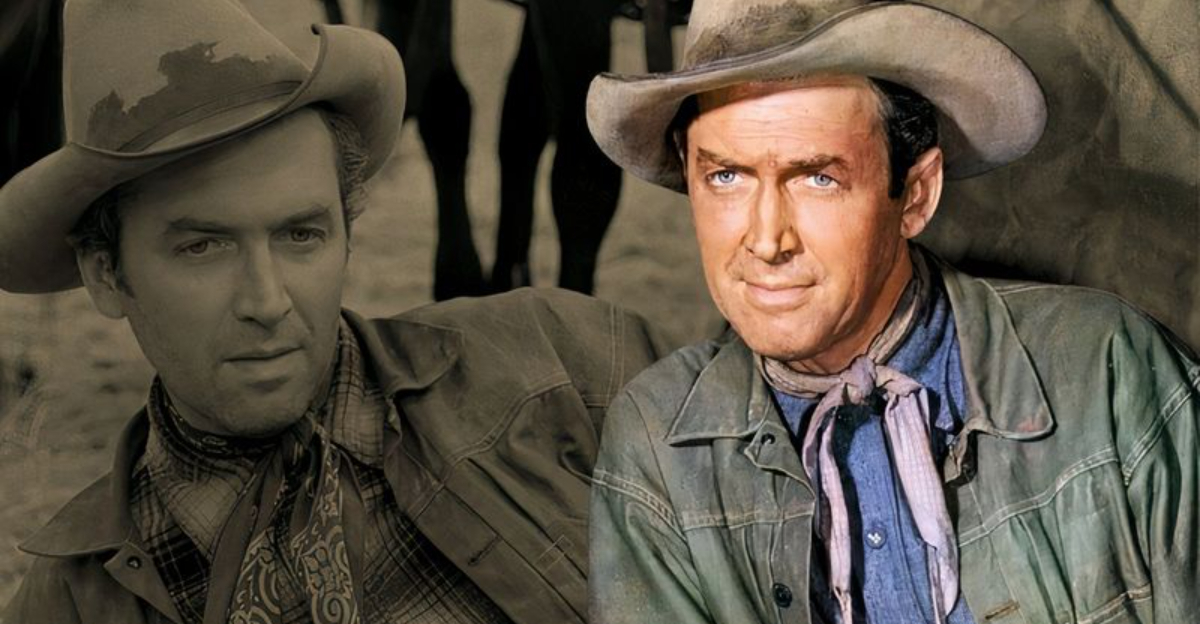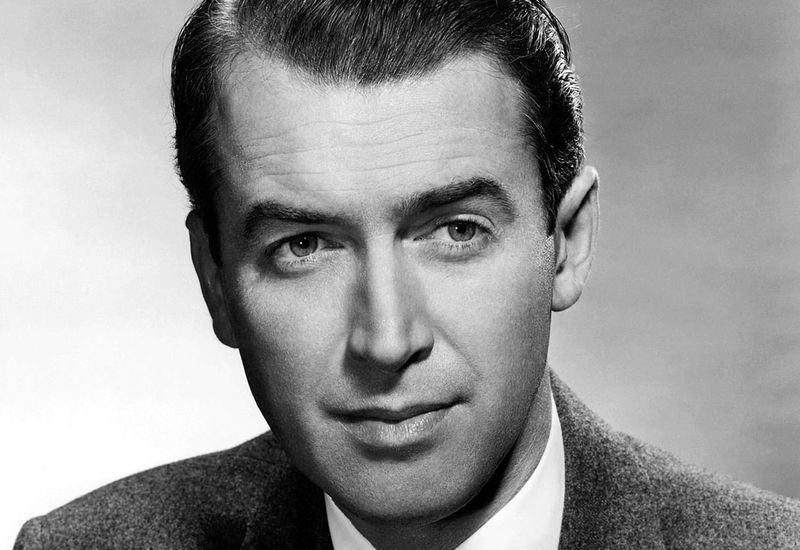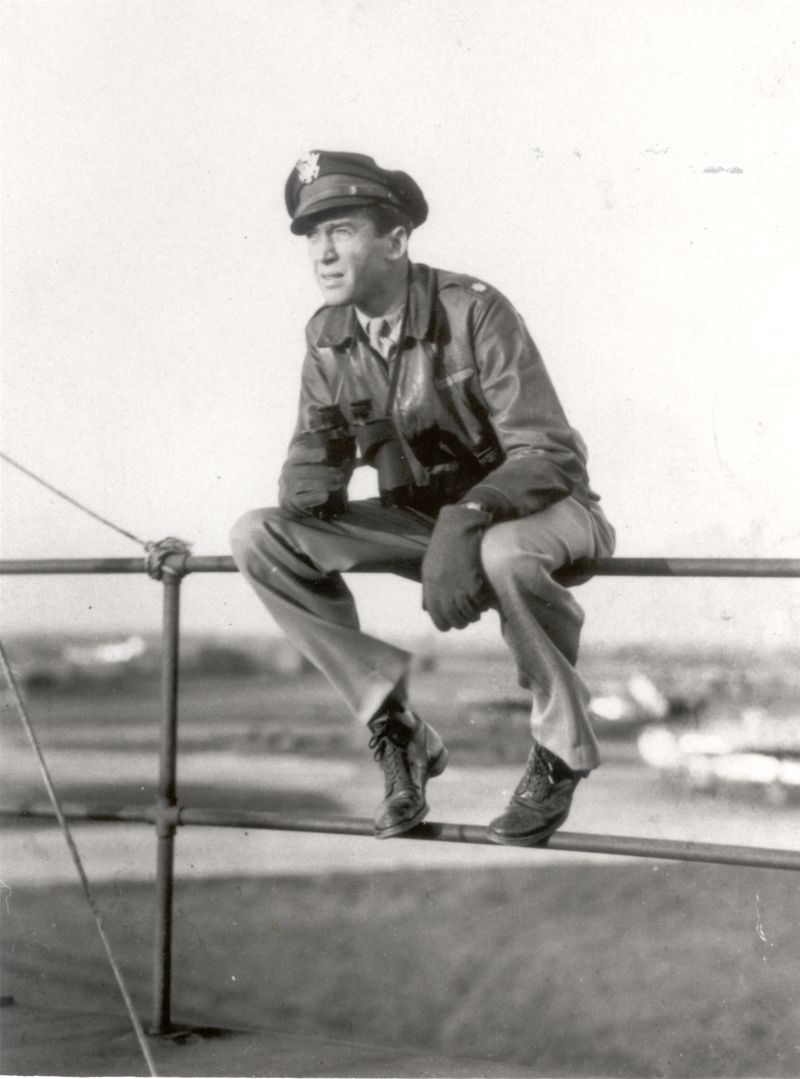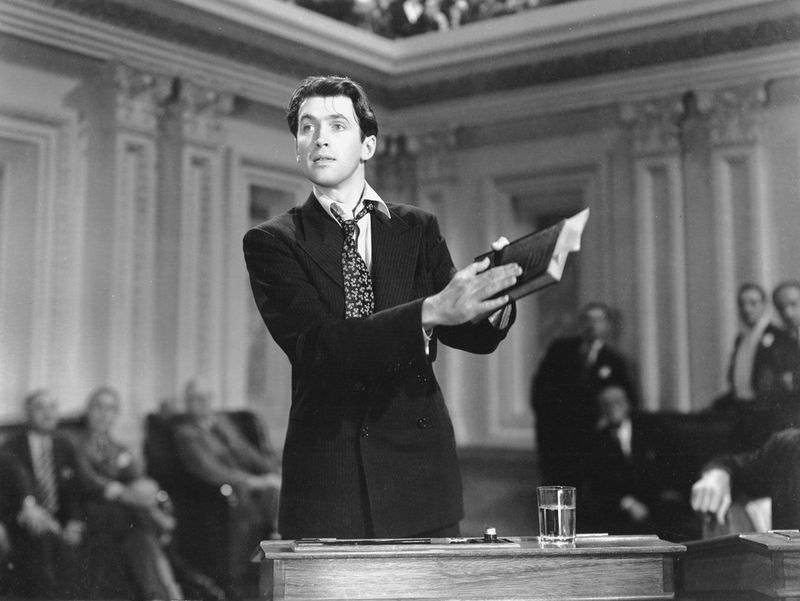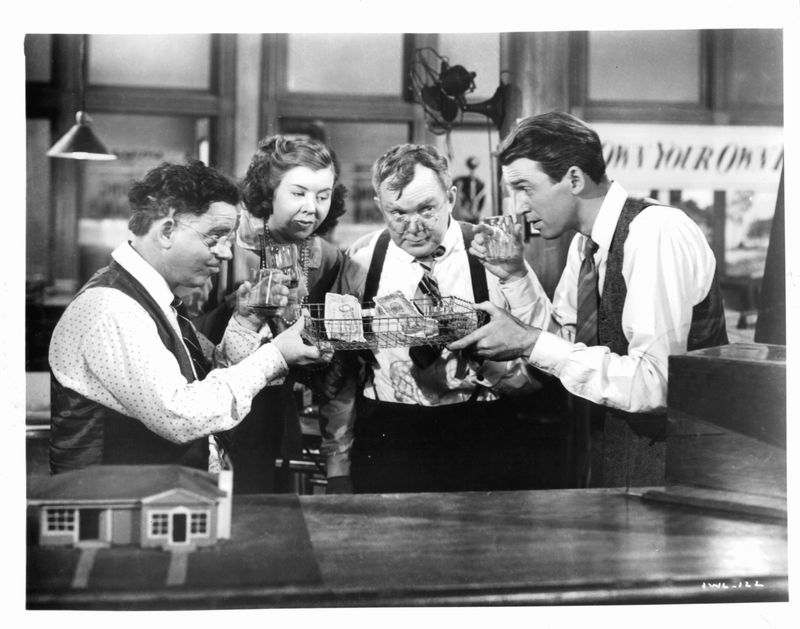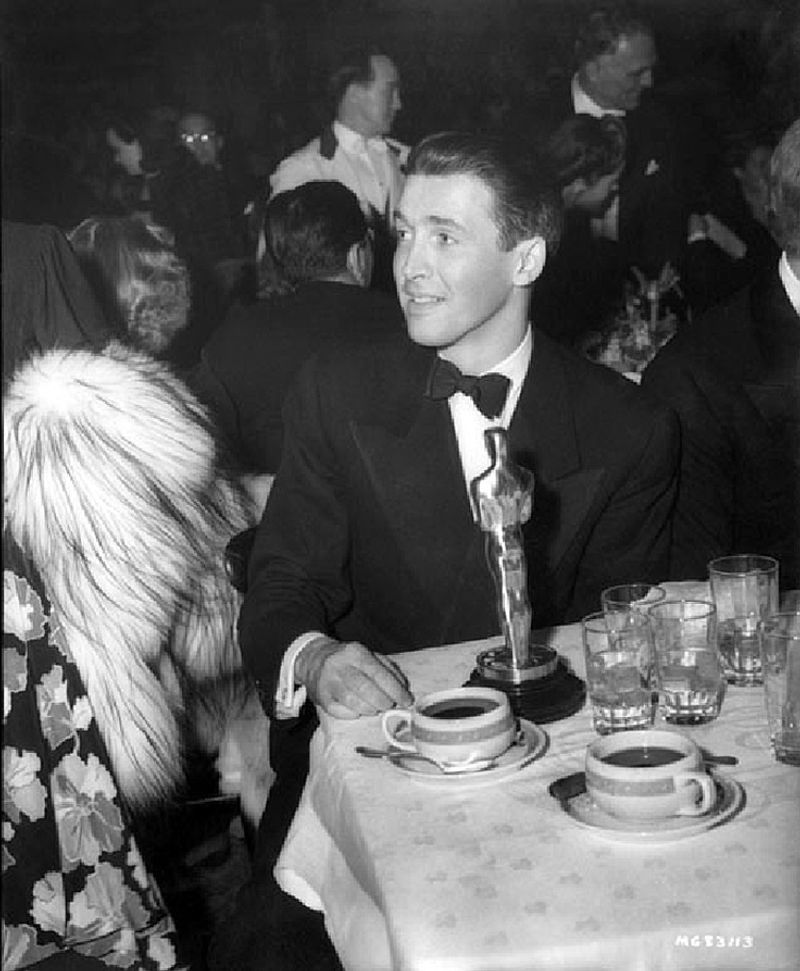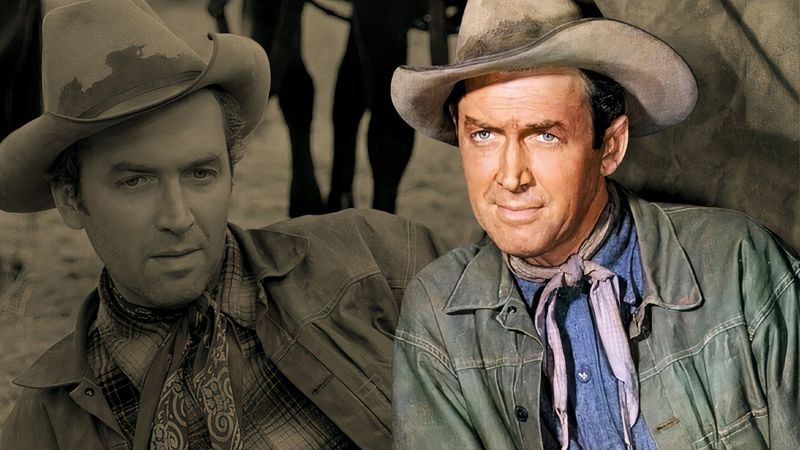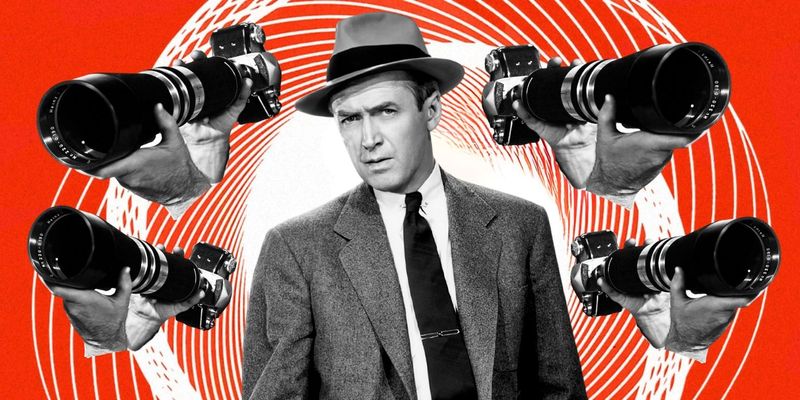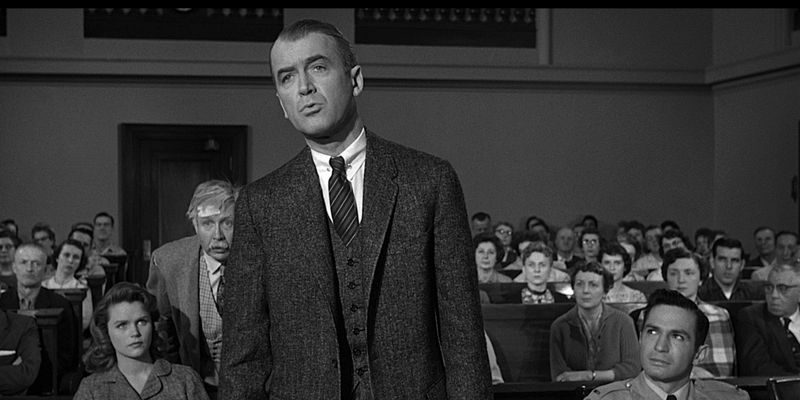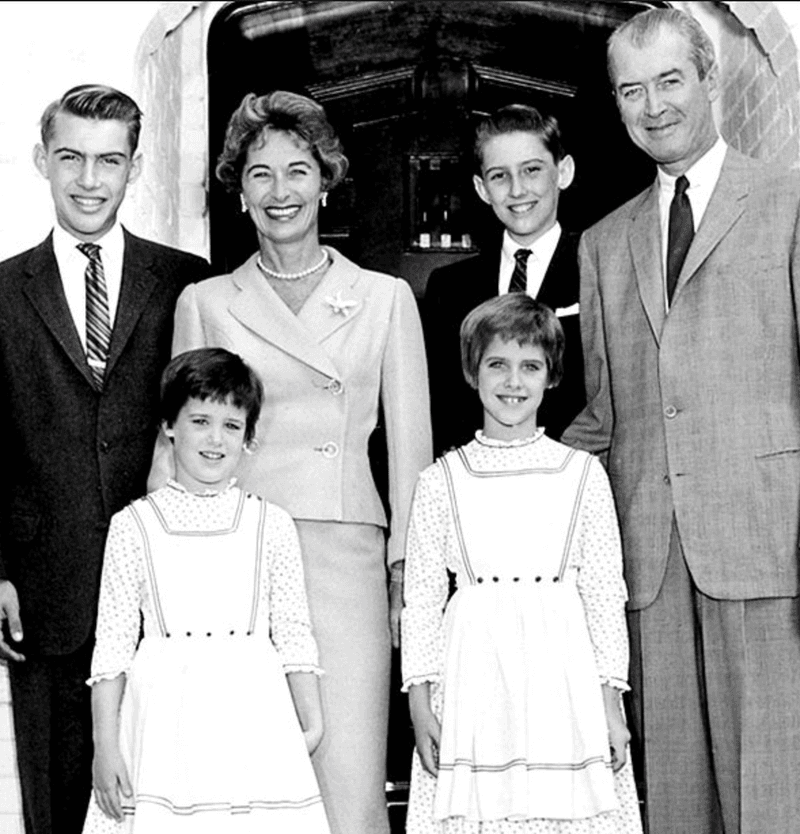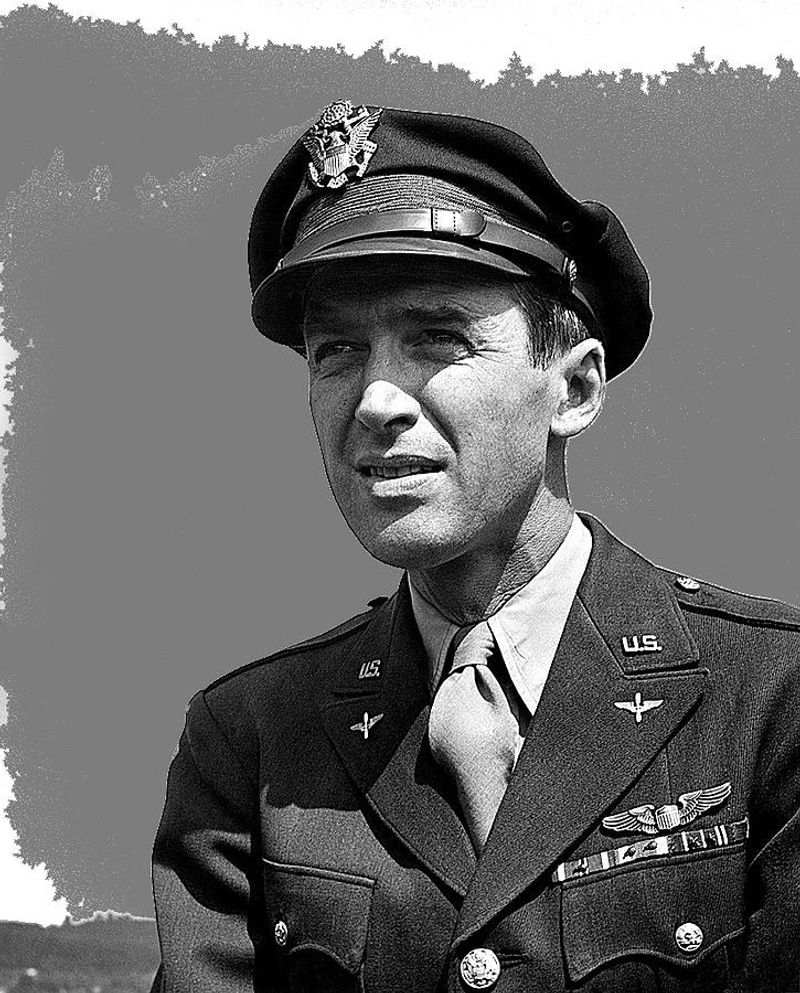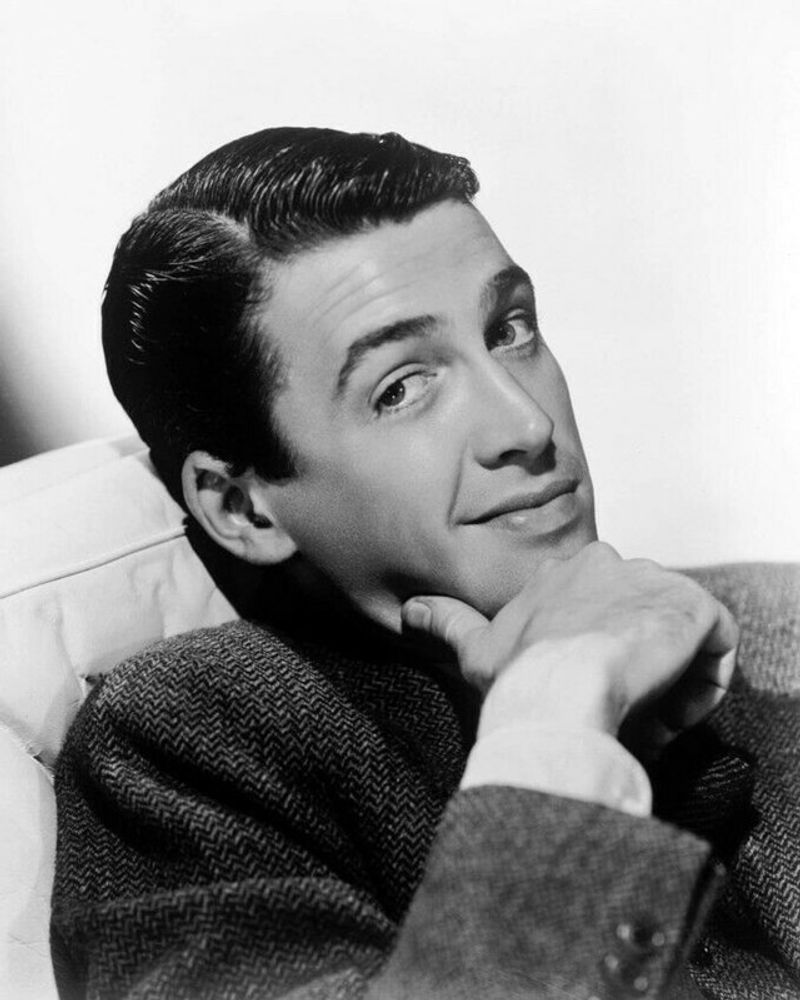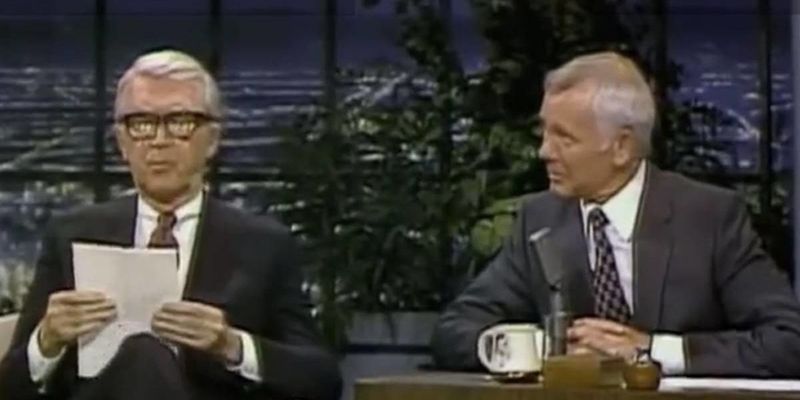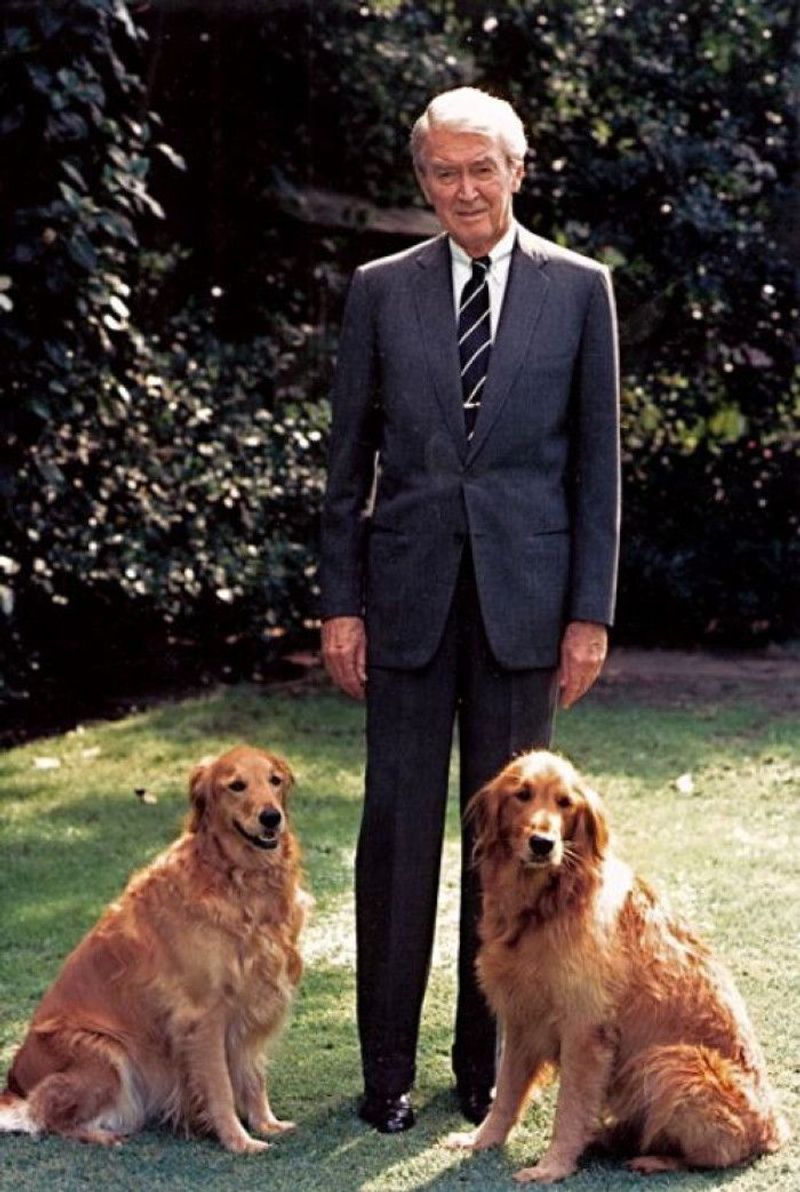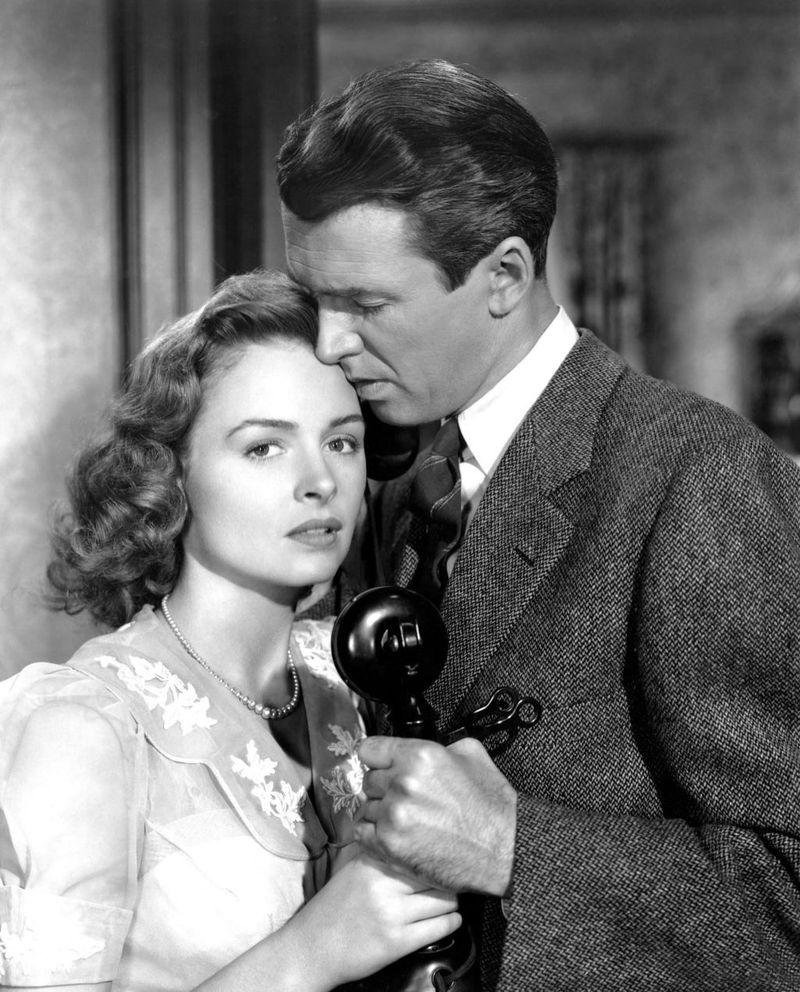James Stewart wasn’t just an actor – he was America’s conscience on the silver screen. With his lanky frame, distinctive drawl, and honest performances, he captured what it meant to be an everyday American facing extraordinary challenges.
From fighting corruption in Washington to discovering the value of an ordinary life in Bedford Falls, Stewart’s characters taught us about courage, decency, and standing up for what’s right.
1. The Quintessential “Everyman”
Stewart had a magical ability to play ordinary men that audiences couldn’t help but root for. Unlike the suave leading men of his era, he brought a stuttering hesitancy and genuine vulnerability to his roles.
His characters weren’t perfect heroes – they struggled, doubted themselves, and sometimes failed before finding their courage. This authenticity made moviegoers feel like they were watching a friend or neighbor on screen rather than a distant Hollywood star.
2. A Decorated WWII War Hero
Many fans don’t realize Stewart wasn’t just playing heroes – he was one. After Pearl Harbor, he insisted on joining actual combat despite being 33 years old and already famous.
Rising from private to colonel during the war, Stewart piloted B-24 bombers through deadly missions over Nazi Germany. His wartime experiences changed him profoundly, adding a noticeable edge to his postwar performances that hadn’t existed in his earlier, more innocent roles.
3. Mr. Smith Goes to Washington Cemented His Image
Frank Capra’s 1939 classic transformed Stewart from promising actor to American icon. His portrayal of Jefferson Smith – the idealistic newcomer who stands against corruption – resonated deeply during a time when democracy itself faced threats worldwide.
Stewart’s famous filibuster scene, where his voice grows hoarse as he fights for truth, became a powerful symbol of individual courage. The film was so effective that some politicians worried it made Congress look bad – the ultimate compliment to its authenticity!
4. George Bailey Reflects the American Spirit
“It’s a Wonderful Life” initially flopped at the box office in 1946. Nobody – not even Stewart – could have predicted it would become perhaps the most beloved American film ever made.
As George Bailey, Stewart portrayed a man who sacrifices his dreams for his community, then discovers that makes him the richest man in town. The role required Stewart to display his full emotional range – from youthful exuberance to suicidal despair to profound gratitude.
5. He Won an Oscar for The Philadelphia Story
Stewart’s Oscar win for this sophisticated comedy surprised everyone – including himself! Playing reporter Macaulay Connor opposite Katharine Hepburn and Cary Grant, Stewart showed he could handle witty dialogue and romantic comedy with the best of them.
His drunken scene remains a masterclass in comedic acting – funny without being slapstick, vulnerable without losing dignity. Stewart later admitted he believed his Academy Award was partly Hollywood’s way of apologizing for not recognizing his work in “Mr. Smith.”
6. He Helped Reinvent the Western
After WWII, Stewart’s collaboration with director Anthony Mann revolutionized Westerns. Gone were the simplistic white-hat heroes of earlier films.
In movies like “Winchester ’73” and “The Naked Spur,” Stewart played complex, sometimes vengeful men haunted by their pasts. His weathered face and newfound intensity brought psychological depth to the genre. These characters weren’t just fighting outlaws – they were battling their own demons across stunning landscapes of the American West.
7. Alfred Hitchcock’s Everyman Hero
Hitchcock saw something darker in Stewart that many directors missed. Their four collaborations explored obsession, voyeurism, and psychological fragility beneath Stewart’s trustworthy exterior.
In “Rear Window,” Stewart’s photographer becomes fixated on spying on neighbors. For “Vertigo,” now considered Hitchcock’s masterpiece, Stewart plumbed disturbing depths as a man consumed by impossible love. These roles revealed that America’s moral compass could harbor troubling compulsions while remaining fundamentally sympathetic.
8. A Champion of Civic Values
Throughout his career, Stewart gravitated toward roles that championed American ideals. From honest lawyers to principled lawmen, his characters stood for fairness even when it wasn’t popular.
In “Anatomy of a Murder,” he defended an unpopular client because everyone deserves justice. As attorney Paul Biegler, Stewart demonstrated that following the Constitution matters more than winning popularity contests. These roles weren’t just entertainment – they were powerful reminders of civic responsibility that influenced generations of viewers.
9. He Chose Family Over Fame
While Hollywood marriages often failed spectacularly, Stewart’s 45-year marriage to Gloria Hatrick McLean remained rock-solid until her death. They raised four children together (two from her previous marriage) in the same Beverly Hills home for decades.
Stewart refused to exploit his family for publicity. His stepson Ronald was killed in Vietnam, a devastating personal tragedy Stewart endured privately. This real-life commitment to family values perfectly matched the decent, loyal men he portrayed on screen.
10. He Stayed in the Air Force Reserve
Most Hollywood stars would have been content with their wartime service, but Stewart’s military commitment lasted 27 years! He continued serving in the Air Force Reserve long after his combat days ended.
Stewart eventually achieved the rank of Brigadier General – the highest-ranking entertainer in American military history. During the Vietnam War, he even flew as an observer on a B-52 combat mission at age 58. Stewart kept this side of his life relatively quiet, never using his military service for publicity stunts.
11. He Starred in Over 80 Films Across 5 Decades
Stewart’s remarkable career longevity puts most actors to shame. From his debut in 1935’s “The Murder Man” to his final role in 1991’s “An American Tail: Fievel Goes West” (voice acting), he remained relevant through Hollywood’s many transformations.
Unlike many stars who got trapped in a single persona, Stewart successfully navigated silent films, screwball comedies, war dramas, Westerns, suspense thrillers, and family films. His final live-action role came in 1980’s “The Magic of Lassie” – 45 years after his career began.
12. America’s Most Trusted Face
Polls consistently ranked Stewart among America’s most admired men, even decades after his box office peak. His reputation for integrity transcended Hollywood – he represented an ideal of American character that resonated across political lines.
Stewart’s warm, slightly hesitant speaking style made him a welcome guest on talk shows well into his elderly years. When he recited his poem about his dog Beau on Johnny Carson’s show, bringing himself to tears, America cried with him. Few celebrities have ever earned such genuine affection from the public.
13. He Received the Presidential Medal of Freedom
In 1985, President Ronald Reagan – himself a former actor – presented Stewart with America’s highest civilian honor. The ceremony recognized not just his cinematic achievements but his lifetime of service to country and culture.
Stewart accepted with characteristic humility, downplaying his own contributions. The moment perfectly captured why Americans loved him: even when receiving extraordinary honors, he remained the modest, slightly embarrassed everyman who never quite believed he deserved the spotlight.
14. A Poet in Private
Few Hollywood legends publish poetry, but Stewart was never typical. His collection “Jimmy Stewart and His Poems” revealed the same unpretentious charm that defined his screen performances.
The poems weren’t sophisticated literary works – they were heartfelt reflections on dogs, family, and everyday joys. Stewart’s poem about his golden retriever Beau, describing the emptiness of his dog’s absence, reveals the sensitive soul behind the strong characters he played. These simple verses showcased his emotional authenticity.
15. His Legacy Lives Every Holiday Season
“It’s a Wonderful Life” has become more than a movie – it’s a cherished American tradition. Each December, families gather to watch George Bailey learn that no man is a failure who has friends.
The film’s themes of community over greed feel increasingly relevant in modern times. Stewart himself seemed amazed by the film’s enduring popularity, once commenting: “It’s the damnedest thing.” His performance continues introducing new generations to the values of kindness, sacrifice, and appreciating life’s simple blessings.
